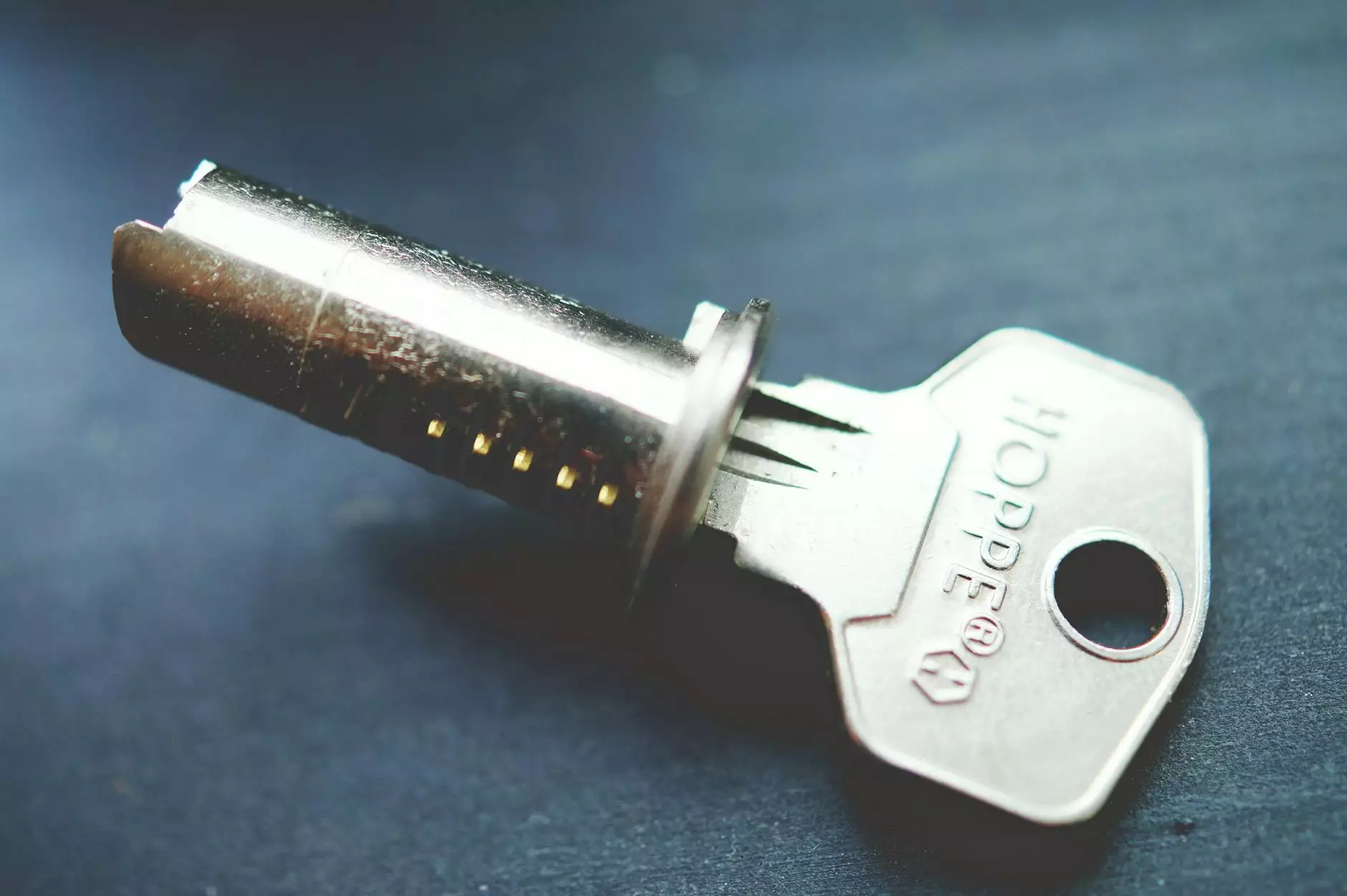Understanding Door Lock Mechanisms: A Comprehensive Guide

When it comes to securing your home or business, door lock mechanisms play a pivotal role. In today's world, where safety is paramount, the type of locking system you choose can impact not only the security of your property but also your peace of mind. This article will delve deep into the intricacies of door lock mechanisms, exploring their functionality, types, and the importance of choosing the right lock for your needs.
What are Door Lock Mechanisms?
A door lock mechanism refers to the internal workings of a lock that enable it to secure a door. These mechanisms can vary significantly in design, complexity, and security level. Understanding these components is essential for making informed decisions about home and commercial security.
The Importance of Understanding Lock Mechanisms
Knowing how different door lock mechanisms operate can help you select the best locks for your environment. It can also assist in troubleshooting issues, such as jamming or misalignment, thus prolonging the lifespan of your locks.
Types of Door Lock Mechanisms
There are several types of door lock mechanisms. Each has unique characteristics and applications. Let’s examine some of the most common types:
1. Deadbolts
Deadbolts are among the most secure door lock mechanisms available. They come in single-cylinder and double-cylinder varieties:
- Single-cylinder deadbolts are operated by a key on the outside and a thumb turn on the inside.
- Double-cylinder deadbolts require a key for both the inside and outside, providing extra security against intruders.
2. Knob Locks
Knob locks are commonly used for interior doors or as secondary locks on exterior doors. They are easy to install and operate but offer less security than deadbolts since they can be compromised relatively easily.
3. Lever Handle Locks
Lever handle locks are often found in commercial settings and are ADA-compliant, making them accessible for individuals with disabilities. While they provide convenience, it’s crucial to pair them with deadbolts for enhanced security.
4. Smart Locks
Technology has revolutionized door lock mechanisms with the advent of smart locks. These locks can be controlled via smartphones or keypads and offer features such as remote locking and unlocking, temporary access codes, and log tracking for entrants.
5. Padlocks
Padlocks are versatile and portable, making them ideal for securing gates, sheds, and other external structures. They come in various sizes, materials, and locking mechanisms, including combination and keyed options.
Choosing the Right Door Lock Mechanism
Selecting the appropriate door lock mechanism for your needs involves several considerations:
- Type of Door: Ensure that the lock is suitable for the type of door you need to secure.
- Security Level: Assess your security requirements based on your environment and the value of your belongings.
- Ease of Use: Consider how frequently the door is accessed and who will be using it.
- Budget: While higher security locks may come at a greater cost, they can save you money in the long term by preventing break-ins.
Benefits of High-Quality Door Lock Mechanisms
Investing in high-quality door lock mechanisms brings numerous benefits:
- Enhanced Security: High-quality locks reduce the risk of forced entry.
- Durability: Premium locks are built to withstand wear and tear over time.
- Peace of Mind: Knowing that your home is secure allows you to live more freely.
- Insurance Benefits: Some insurance companies may reduce premiums for properties equipped with advanced security measures.
Common Issues with Door Lock Mechanisms
Like any mechanical system, door lock mechanisms are prone to specific issues. Being aware of these can help you mitigate problems effectively:
- Jamming: Frequently occurs due to dirt, debris, or misalignment. Regular cleaning and maintenance can prevent this.
- Worn Keys: Over time, keys can become worn down, making it difficult to operate the lock. Consider replacing them if you notice signs of wear.
- Internal Damage: Locks can become damaged over time due to forced entries or general wear. Replacing locks periodically ensures maximum security.
Maintaining Your Door Lock Mechanisms
Proper maintenance can extend the lifespan of your door lock mechanisms. Here are some effective maintenance tips:
- Regular Lubrication: Use graphite or silicone spray to keep locks moving smoothly.
- Routine Inspections: Regularly check for any signs of damage or wear and repair as necessary.
- Keep It Clean: Ensure there are no obstructions in the lock mechanisms by cleaning it periodically.
Future Trends in Door Lock Mechanisms
As technology evolves, so do door lock mechanisms. Here are some exciting trends to watch for:
- Integration with Smart Home Systems: Many new locks can now be integrated with security systems and smart home devices for enhanced convenience and control.
- Biometric Locks: These locks use fingerprint or facial recognition technology, eliminating the need for keys entirely.
- Advanced Material Use: New materials that are both lightweight and durable will enhance security without compromising aesthetics.
Conclusion
Understanding door lock mechanisms is crucial for anyone looking to enhance their property’s security. By knowing the types of locks available, the benefits of each, and how to maintain them, you can make informed decisions that protect your home or business effectively. Remember, investing in quality locks and regular maintenance will save you time, money, and stress in the long run. Explore your options, consult a professional if necessary, and ensure that your property is as secure as possible.
Get Expert Help at Kaukaban.com
For those in need of professional advice or services related to door lock mechanisms, Kaukaban.com is your best resource. With expertise in Keys & Locksmiths as well as Hardware Stores, Kaukaban is dedicated to providing tailored solutions that meet your unique needs. Don’t compromise on security – contact Kaukaban today to learn more about how we can help you protect what matters most.









